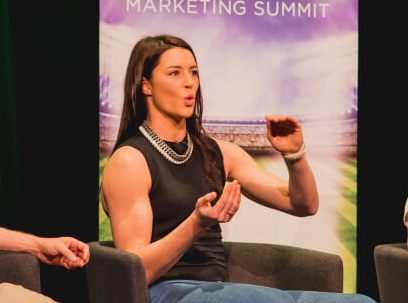Ad industry needs ‘massive shift’ in mindset to stop sexualising female athletes, warns top star
One of Australia’s top sports stars has called on sponsors to stop sexualising female stars and start to showcase their abilities as athletes in their brand promotions.
Sydney Swifts and Australia Diamonds netballer Sharni Layton told an audience at Mumbrella’s Sports Marketing Summit last week there needs to be a “massive shift” in mindset in the industry.
“Something I’m really passionate about, particularly for female athletes, and the issues around body image at the moment, is not selling yourself as sexy,” she told the Ask an Athlete panel.



Fascinating opinions from these experienced experts in communications. Because being good at sport means you are an expert in advertising.
I agree with the lady. But its a wider societal issue.
Women are sexualised throughout society and until that changes, it will be quite hard for women in sport to avoid the same problem.
I mean when was the last time you saw a male footballer in a cossie on the beach, down on all fours arching his back, looking seductively at the camera. Apart from the odd calendar shoot, we just don’t sexualise straight men to the same degree, and even in those calendar shoots, the men are never giving come hither looks.